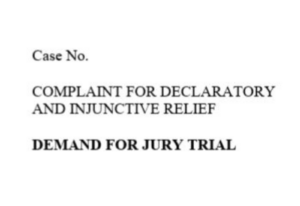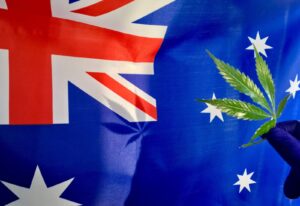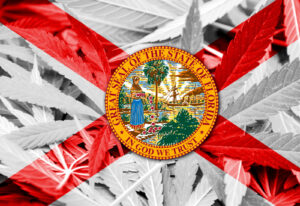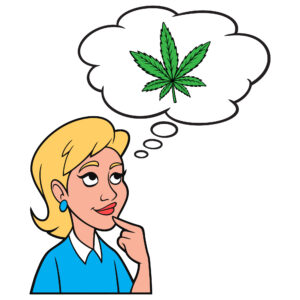 With the passage of the 2018 Farm Bill and the proliferation of food products containing CBD, we’ve been writing extensively about how the United States Food and Drug Administration (FDA) and in particular, the United States Food, Drug, and Cosmetic Act (FDCA) apply to the interstate sale of CBD products. Unfortunately, however, we have little guidance from the FDA regarding how hemp-CBD products such as foods, beverages, dietary supplements and cosmetics should comply with basic FDA requirements, including labeling rules.
With the passage of the 2018 Farm Bill and the proliferation of food products containing CBD, we’ve been writing extensively about how the United States Food and Drug Administration (FDA) and in particular, the United States Food, Drug, and Cosmetic Act (FDCA) apply to the interstate sale of CBD products. Unfortunately, however, we have little guidance from the FDA regarding how hemp-CBD products such as foods, beverages, dietary supplements and cosmetics should comply with basic FDA requirements, including labeling rules.
What we do know is that the FDA has consistently taken the position that that CBD is excluded from the definition of “dietary supplement” under the Federal Food, Drug & Cosmetic Act (“FDCA”) because CBD is an active ingredient in FDA-approved drugs and was the subject of substantial clinical investigations before it was marketed as a dietary supplement. Therefore, the FDA maintains, as stated by Commissioner Scott Gottlieb, that:
[It is] unlawful under the FD&C Act to introduce food containing added CBD or THC into interstate commerce, or to market CBD or THC products as, or in, dietary supplements, regardless of whether the substances are hemp-derived. This is because both CBD and THC are active ingredients in FDA-approved drugs and were the subject of substantial clinical investigations before they were marketed as foods or dietary supplements. Under the FD&C Act, it’s illegal to introduce drug ingredients like these into the food supply, or to market them as dietary supplements. This is a requirement that we apply across the board to food products that contain substances that are active ingredients in any drug.”
On January 15, 2019, in light of the FDA’s current position on hemp-derived CBD and the recent passage of the 2018 Farm Bill, Senators Ron Wyden (D-OR) and Jeff Merkely (D-OR) sent a letter to FDA Commissioner Gottlieb urging the Commissioner to update federal regulations governing the use of certain hemp-derived ingredients in food, beverages, and dietary supplements. The Senators began their letter by stating,
As authors of the Hemp Farming Act, which removed the outdated restrictions on the production and marketing of industrial hemp, we urge the U.S. Food and Drug Administration (FDA) to immediately update federal regulations governing the use of certain hemp-derived ingredients in food, beverages or dietary supplements.”
The Senators go on to note that the Act removed from the federal list of controlled substances the hemp plant, and “derivatives of cannabis, including the seeds thereof and all derivatives, extracts, cannabinoids, isomers, acids, salts, and salts of isomers, whether growing or not, with a delta-9 tetrahydrocannabinol (THC) concentration of less than 0.3 percent on a dry weight basis. Under this definition, Congress legalized the production and sale of industrial hemp and hemp derivatives, including hemp-derived cannabidiol (CBD).”
Because of the removal of hemp-derived CBD from the list of controlled substances, as well as growing interest from the public in CBD products, the Senators argue that the FDA’s regulations are outdated, and urge the agency to “immediately begin updating regulations for hemp-derived CBD and other hemp-derived cannabinoids, and [to] give U.S. producers more flexibility in the production, consumption, and sale of hemp products.” The Senators also requested a response from the FDA to the following questions within thirty days:
- What steps are the agency advancing to clarify to the public the authority the agency has in the production and marketing of hemp, specifically Cannabis sativa L. and its derivatives?
- What lawful pathways are currently available for those who seek approval to introduce Cannabis sativa L. and its derivatives as a food, beverages or dietary supplement, including into interstate commerce?
- Are there circumstances in which Cannabis sativa L. and its derivatives may be permitted as a food, beverages or dietary supplement by the agency?
- Will the agency consider issuing a regulation, or pursuing a process, that would allow Cannabis sativa L. and its derivatives in food, beverages or dietary supplements that cross state lines?
Given the ongoing government shutdown that has left the FDA short on staff, we will be waiting to see if they are able to respond to the Senators’ questions within the requested thirty days. There is no doubt that thorough responses to these questions would provide the hemp-CBD industry with some much needed clarity regarding the FDA’s position on the sale of these products.























